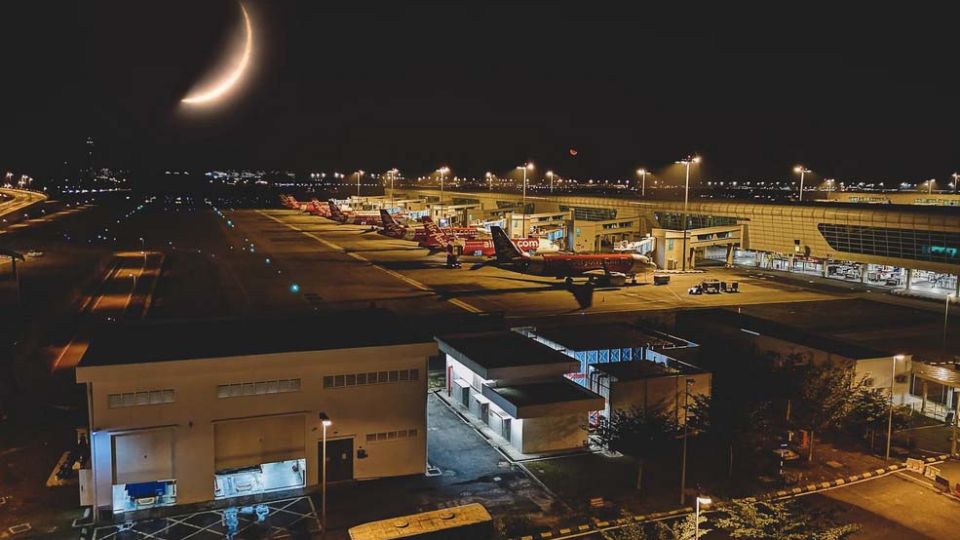July 15, 2024
KUALA LUMPUR – Malaysia Airports Holdings Berhad (MAHB) is bringing on board new investors by the end of 2024 in an attempt to address the creaky facilities and dwindling airline connectivity at Kuala Lumpur International Airport (KLIA).
While some have welcomed the injection of funds and expertise that could steer Malaysia’s main gateway back on course, experts remain sceptical on whether these initiatives can give enough lift for KLIA to catch up with its regional counterparts.
Under a RM12.3 billion (S$3.5 billion) deal that will be completed by end-2024 and will take the listed airport operator private, US-based investment fund Global Infrastructure Partners (GIP) and the United Arab Emirates’ biggest sovereign wealth fund, Abu Dhabi Investment Authority, will emerge with a combined 30 per cent stake in MAHB.
These two foreign stakeholders are part of the Gateway Development Alliance (GDA) consortium that will acquire MAHB. The consortium also comprises two of MAHB’s existing local investors – sovereign wealth fund Khazanah Nasional and state pension fund Employees Provident Fund – that together will have an increased stake of 70 per cent in the airport operator after the exercise.
A key transit hub that was once ranked second-best airport in the world in 2001, KLIA has been slipping down the Skytrax global airport rankings since 2013. In 2024, it fell another four spots to rank 71st, from 67th in 2023.
Facilities at the airport, which was built in 1998, have been beset by problems including leaky ceilings and issues with the baggage-handling system. The aerotrain service linking KLIA’s satellite building with its main terminal broke down in March 2023, and has since been suspended, forcing passengers to use a less-convenient bus service.
Long queues to clear immigration are also not uncommon, as senior logistics manager Robert Powell finds on his frequent flights from Singapore, where he lives.
“KLIA has the potential to be much better but, unfortunately, it just doesn’t meet expectations. (I notice that) many immigration counters are unmanned, resulting in long queues forming,” said the 54-year-old Australian.
Insufficient investment in infrastructure and the lack of experience among those overseeing airport operations have also been blamed for KLIA’s decline.
A senior industry player with knowledge of the company’s operations told The Straits Times: “Decision-making was hampered by a lack of aviation experience among board members of MAHB. It took more time to explain the issues of the airport, rather than resolving it.”
MAHB, which manages 39 airports across Malaysia, has invested RM1.4 billion in its airports in the last five years. This is a fraction of the investment made in Thailand’s airports, which stands at RM6.6 billion, and Indonesia’s airports, at RM12 billion, Second Finance Minister Amir Hamzah Azizan told Parliament in July.
Meanwhile, the number of long-haul routes from Malaysia has also diminished, falling to 22 in 2023, from 33 in 2010. This is in stark contrast with Singapore, which had 40 long-haul routes in 2023, and Thailand, with 55 long-haul routes in 2023, he added.
In 2023, the number of post-pandemic passengers travelling through KLIA reached over 47 million. However, it pales in comparison to the over 62 million travellers who used the airport in 2019 before Covid-19 hit.
Datuk Seri Amir said on July 3 that the GDA consortium will invest an estimated RM10 billion in the next five years in MAHB’s airport infrastructure and operations. GDA said in May that its priorities will be to deliver a new aerotrain and baggage-handling system to KLIA, attract new airlines, improve terminal ambience, and expand retail outlets at MAHB’s airports.
An industry expert told ST that fresh investors may not be the magic bullet to transform KLIA.
Mr Shukor Yusof, founder of aviation consultancy Endau Analytics, has questioned the suitability of GIP, one of the world’s leading infrastructure investors, which has managed airports in the UK and Australia. He noted that GIP-run airports are not among the top 10 in Skytrax’s global 2024 ratings. These include London Gatwick (ranked 48), Sydney Airport (ranked 55) and London City Airport (ranked 82).
“Those airports are not even in the top league of global rankings, and they are known for being staid, dour and boring as compared to Singapore’s Changi Airport, South Korea’s Incheon Airport and other airports in the Gulf,” said Mr Shukor.
In June, Prime Minister Anwar Ibrahim defended GIP’s involvement in the privatisation deal, saying that it was selected as it had agreed to continue appointing a Malaysian as MAHB’s chairman and chief executive officer, and for the majority of MAHB’s shares to remain under national ownership.
GIP declined to respond to questions from ST on its plans to improve KLIA.
Mr Shukor also noted that the privatisation deal retains MAHB’s existing management structure and grants more control to Khazanah, which has struggled to turn around national carrier Malaysia Airlines.
“I do not believe this privatisation deal will be effective in the long term,” he said.
Malaysia’s Transport Ministry said in June that KLIA’s upgrading plans are expected to start in 2026, while improvements to the baggage-handling system should be completed by the end of 2025.
But it is not just the airport’s facilities that passengers have found wanting.
Frequent traveller Priscilla Patrick, who is Malaysian, told ST she has observed airport staff struggling to provide directions and communicate in English with international tourists.
“The airport forms the first impression for tourists and, unfortunately, it’s not a good one,” said the campsite owner.


